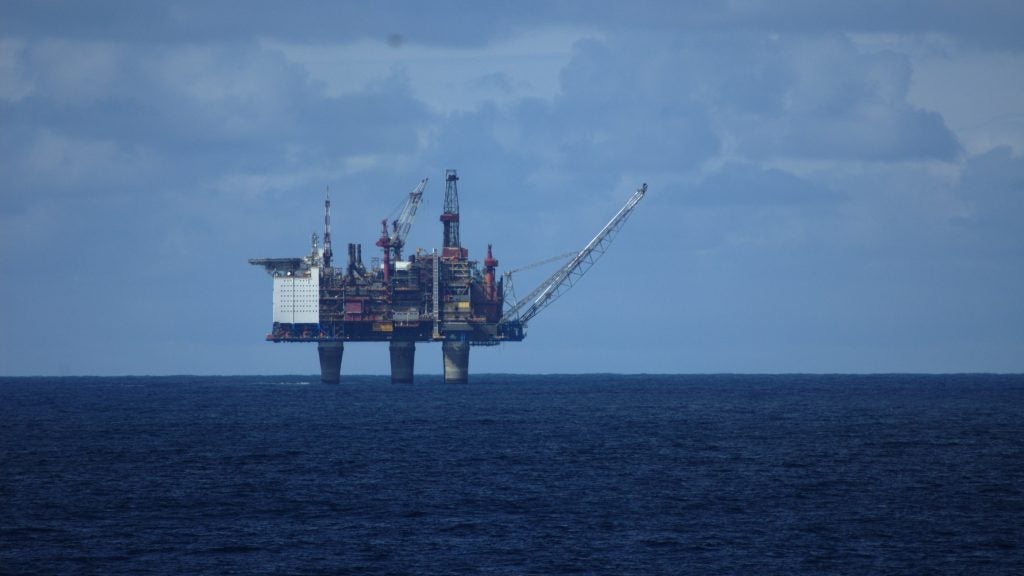
Cliché upon cliché has been used to describe the past 12 months’ economic volatility. But after a rollercoaster period, grim reality is setting in, and with it some hard facts that can not be dressed up with pretty words. For the offshore industry these are a drop in revenue, a cut in production and a challenge in sourcing funds.
Strong demand and tightened supply led to a rapid increase in fuel prices in the first half of 2008 but since then the price of oil has dropped 71% and natural gas 59%. As a result, exploration and production (E&P) companies are cutting back their capital budget and drilling plans for 2009. The impact of this is likely to be deep and far-reaching.
New figures released by research company GlobalData in its Impact of the Financial Crisis on Oil & Gas Exploration and Production Investment report also show that the oil slump has had a fast effect on the value of offshore operations, with companies’ valuations dropping 63% from their 52-week highs. The shockwaves have been most heavily felt by small-and medium-sized companies, which have seen a huge fall in value.
Projects cancelled as companies remove costs
Lower commodity prices are beginning to discourage investment and projects that were feasible a year ago are now a problem instead of an opportunity. In the past few months alone the change of direction has been highlighted by the cancellation of Saudi Arabian Oil’s aging onshore Dammam oil field upgrade at a cost of $1.2bn, Petrobras’ postponed construction tenders for 28 deep-sea drilling rigs and Petro-Canada’s deferred construction of an upgrader for its C$21bn
(US$17bn) Fort Hills oil sands project.
In addition, most E&P companies have been spending more than their internal cash flows in the past three years – a fact that cast a shadow as the downturn hit. The trend began moderately in 2005 but peaked in 2007 when on average they spent 126% of their income, according to GlobalData.
How well do you really know your competitors?
Access the most comprehensive Company Profiles on the market, powered by GlobalData. Save hours of research. Gain competitive edge.

Thank you!
Your download email will arrive shortly
Not ready to buy yet? Download a free sample
We are confident about the unique quality of our Company Profiles. However, we want you to make the most beneficial decision for your business, so we offer a free sample that you can download by submitting the below form
By GlobalDataThe production levels witnessed today are likely to be cut dramatically in 2009, despite investments made in 2008 as oil and gas companies rode the wave of high oil prices. Companies are also planning to reduce their capital expenditure and capital-intensive projects are being modified, deferred or cancelled – which will more than likely result in a cut of staff.
First off the mark was Chesapeake Energy, which cut its capital budget programme for the remainder of this year and next in September. After slicing $4.7bn of its capex through to 2010 it then lowered its production growth forecast to 18% from 21% for 2008 and to 16% from 19% for 2009 and 2010. This was then echoed by SandRidge Energy, which halved its capex budget, and Williams, which lowered its gas production growth rate.
Unlikely safe havens
Unconventional plays can be risky in times of economic uncertainty but with risk comes the potential for huge profit. According to a report commissioned by the American Clean Skies Foundation and released in July, one such sideline bet – shale gas – can meet the US’ natural gas demand growth for the next 100 years.
This fact, combined with rising oil prices, brought an unprecedented interest to this unconventional resource during the first half of 2008. "With the decline in conventional gas production, onshore gas shales and unconventional gas resources will play a key role in North America’s future gas supply," the report states.
EnCana, Chesapeake Energy and Anadarko Petroleum are the largest landholders of shale gas plays and have primarily expanded their assets through acquisition. The recent pull back in natural gas prices has raised questions about the viability of these assets and the number of deals involving shale has declined in recent months.
But GlobalData’s research still points to shale being a positive future investment. "We believe that with the recent pull back in the natural gas prices, shale assets have become more reasonable to acquire. There will be significant M&A activity in unconventional gas as large global players seek to position themselves in these resources."
New wave M&A
Previous overestimations of a company’s spending power combined with downgraded valuations have put the brakes on many planned mergers in the industry. There were on average 48 upstream M&A deals a month between April and September but by Q4 2008 this was on a steady decline – October saw 41 completed and just 36 were signed off in November.
"Going forward, highly leveraged deals will become more difficult in the sector due to the restricted access to credit. However, we expect further consolidation in the industry driven primarily by reserve replacement pressures and the need to diversify geographically," states the report.
Although previous planned tie-ups have been put on ice, lower company values may lead to fresh takeover targets being exposed for cash-rich players. While deals in 2008 focused on asset buys, GlobalData predicts increased consolidation at the corporate level. The shale market in particular could see big E&P companies either acquire small, specialised companies or buy unconventional resources from smaller players, according to the research firm.
"Small- and mid-sized E&P companies operating in Africa, especially in the Gulf of Guinea and Angola, could be among the first takeover targets. Companies that are finding difficulties raising capital from debt and equity markets may be forced to merge or sell off assets," the report says. In addition, to get through this difficult period some companies could join with western independent firms or emerging oil players from China, Malaysia and other Asian countries.
As small- and mid-sized firms struggle to raise money from equity and debt markets the scene is set for a changing landscape – both at the production sites and between the diverse players. Although prices are on the decline, demand is still rising and clever positioning in the coming months will be vital to cash in on these promising areas.
The GlobalData report is available for purchase at www.global-market-research-data.com





